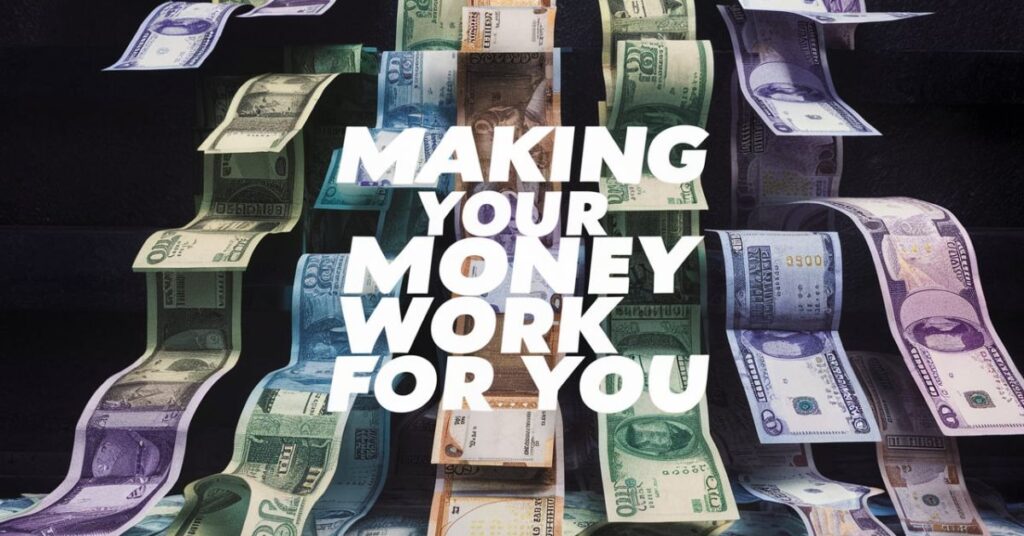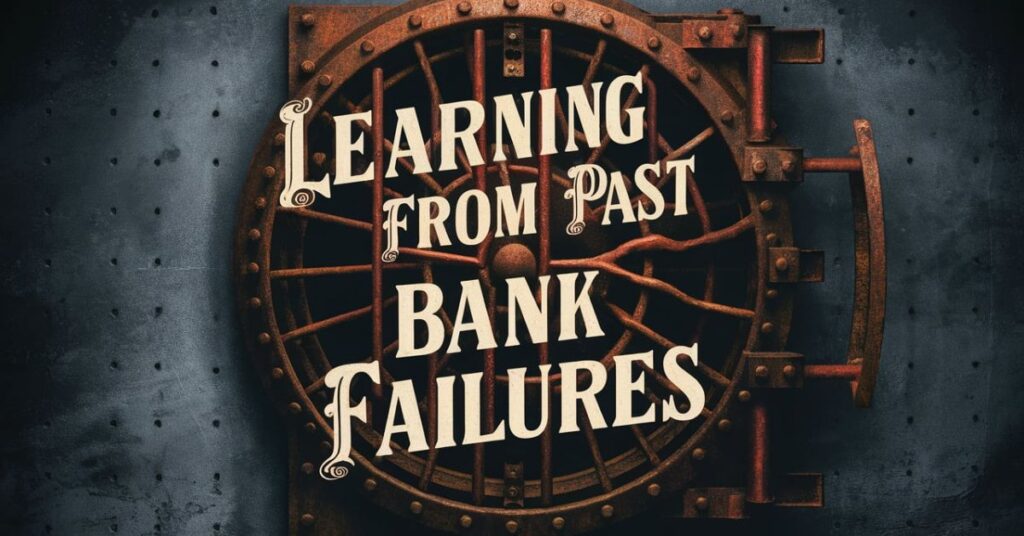Banking failures sometimes happen. This means banks can’t give people their money back. It’s a big problem for everyone. But it’s not all bad news. There are risks in banking failures, but also chances to make money.
When banking failures happen, bad people try to trick others. They want to steal money and information. This is very dangerous during banking failures. We need to be careful.
This article will teach you about banking failures. You’ll learn how to stay safe during banking failures. You’ll also learn how to use these times of banking failures to help your money grow. Let’s start!
Staying Safe When Banks Fail
When banks have trouble and banking failures are possible, scammers get busy. They try to trick people who are worried about their money during bank failures. They use fake messages and emails. These look real, but they’re not.
One big trick during bank failures is SMS scams. These are short messages on your phone. They might say your account is locked due to bank failures. Or they might say you need to update your information because of bank failures. Don’t believe these!
Email scams are also common in times of bank failures. Bad people might pretend to be your bank experiencing failures. They might say there’s a problem with your account due to bank failures. They want you to click a link or give them information. Don’t do it!
Protecting Your Money and Information
There are ways to keep your money and information safe during banking failures. First, never click links in emails or texts about your bank, especially during potential bank failures. If you’re worried about banking failures, call your bank.
Be careful with your personal information during bank failures. Don’t give out account numbers or passwords. Real banks won’t ask for these in an email or text, even during bank failures. If someone calls asking for this info claiming it’s due to banking failures, hang up.
Use strong passwords for your online banking to protect against risks from bank failures. Don’t use the same password for everything. Turn on two-factor authentication if you can. This makes it harder for bad people to get into your account, even during bank failures.
Smart Money Moves During Bank Troubles
Bank failures can be scary. But they can also be a chance to make smart money moves.
Try out some of these ideas:
- Keep your money in different places
- Learn about bank health
- Use bank insurance
- Look for good deals
- Try new banking options
Making Your Money Work for You

In tough times, your money should do more than sit in a bank. Let’s explore ways to make it grow and protect it from risks.
Spread Your Money Around
Don’t keep all your money in one bank. Put some in different banks to protect against individual banking failures. This way, if one bank has trouble or experiences failures, you still have money in others.
Check Your Bank’s Health
Look at how your bank is doing to assess its risk of failures. Is it making money? Does it have enough cash to prevent failures? You can find this info online or ask your bank about their safeguards against failures.
Use Bank Insurance
In the US, the FDIC insures bank accounts against failures. This means if your bank fails, you can get your money back. But it only covers up to $250,000 per person, per bank in case of failures.
Look for Good Deals
When banking failures occur, they might sell things cheap. This could be a chance to buy during banking failures. You might get a good deal on a house or other things due to banking failures.
Try New Banking Options
Look at other places to keep your money that might be less prone to failures. Credit unions are like small banks and may be more stable during widespread banking failures. Online banks can be good too and might be less affected by traditional banking failures.
Staying Informed About Bank Health
It’s important to know how banks are doing. This can help you make good choices with your money. You don’t need to be a money expert. Just pay attention to some key things.
Read news about banks. Look for stories about banks losing money or having problems. If you hear about a bank getting in trouble, don’t panic. Just think about what it means for your money.
Ask questions at your bank. It’s okay to ask how they’re doing. They should be able to tell you if they’re safe and strong. If they won’t answer, that might be a bad sign.
Check official sources too. In the US, the FDIC website has info about bank safety. They list banks that are in trouble. This can help you know if you need to worry about your bank.
Understanding Bank Failures
Bank failures happen for different reasons.
Let’s break it down simply:
| Reason | Explanation |
| Bad Loans | Bank lends money to people who can’t pay back |
| Not Enough Cash | Bank doesn’t have enough money on hand |
| Economic Problems | When the economy is bad, banks can suffer |
| Poor Management | Bank leaders make bad decisions |
| Fraud | Someone in the bank is stealing or lying |
Learning from Past Bank Failures

History can teach us a lot about bank failures. In 2008, many banks failed. This caused big problems for everyone. People lost jobs and homes. But we learned from this.
Now, banks have stricter rules. They need to keep more money safe. They can’t take as many risks. This helps protect people’s money. But it doesn’t mean banks can’t fail.
Recently, some banks like Silicon Valley Bank failed. This scared many people. But the government stepped in to help. They made sure people could get their money. This shows that while bank failures are serious, there are ways to handle them.
Read this article: Does Berkshire Bank Cash in Savings Bonds?
What to Do If Your Bank Fails
If your bank fails, don’t panic. In most cases, you’ll be okay. The government usually steps in to help. They make sure people can get their money.
First, stay calm and get information. Check the FDIC website. They’ll tell you what’s happening. You’ll learn how to get your money. Usually, you can still use your debit card and checks for a while.
If you have a loan with the failed bank, you still need to pay it. The loan might be sold to another bank. But your terms should stay the same. Keep making payments as usual.
Turning Bank Troubles into Opportunities
Bank failures are scary. But they can also be a chance to improve your money situation.
Check out these helpful tips:
- Look for better interest rates at other banks
- Consider buying cheap stocks in good banks
- Think about investing in things other than banks
- Learn more about how money and banks work
- Build up your emergency savings fund
Planning for Future Bank Troubles
It’s smart to be ready for bank problems. Even if things are good now, they can change. Having a plan can help you feel safe and make good choices.
Keep some cash at home. Not too much, but enough for a few days. This helps if banks close suddenly. Make sure you have online access to your accounts. This lets you check your money and move it if needed.
Know your bank’s health. Check it every few months. If you see signs of trouble, think about moving some money. But don’t make sudden moves based on rumors. Always check facts first.
Final Words
Banking failures can be scary. They bring risks of scams and lost money. But they also bring chances to make smart money moves. The key is to stay informed and careful about banking failures.
Remember to protect your information during banking failures. Don’t fall for tricks from scammers who take advantage of banking failures. They often use bank troubles to fool people. Always check with your bank directly if you’re unsure about something related to potential banking failures.
At the same time, look for ways to improve your money situation even during banking failures. Spread out your savings to protect against individual banking failures. Learn about different investment options. Stay ready for whatever happens in the banking world, including potential banking failures.
FAQs
What should I do if I get a text from my bank asking for information?
Don’t respond. Call your bank using the number on their official website or your bank card.
Is my money safe if my bank fails?
Usually, yes. In the US, the FDIC insures up to $250,000 per person, per bank.
Can I still pay my loans if my bank fails?
Yes. Keep making payments as usual. You’ll be told if anything changes.
How can I check if my bank is healthy?
Look at their financial reports. Check news about the bank. Ask your bank directly.
Should I keep all my money in one bank?
It’s safer to spread your money across different banks and investments.

David: Seasoned financial expert with 5 years in banking and investments.
Skilled in personal finance, market analysis, and wealth management. Empowers clients to achieve financial goals.





